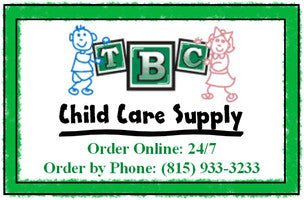Child care plays a significant role in shaping American society, impacting families, communities and the nation as a whole. As parents increasingly participate in the workforce and the dynamics of modern life continue to evolve, understanding the importance of child care becomes crucial. In this blog post, we will explore some fascinating facts that shed light on why child care is a vital component of American society.
- Economic Impact
Child care has a profound impact on the economy, both at the individual and national levels. According to a study by the U.S. Chamber of Commerce Foundation, the lack of accessible, affordable, and high-quality child care costs the U.S. economy an estimated $57 billion annually due to reduced productivity, increased employee turnover, and missed workdays. By investing in quality child care options, we not only support working parents but also contribute to a stronger economy and increased workforce participation.
- Early Childhood Development
Early childhood is a critical period for a child's cognitive, social, and emotional development. High-quality child care environments provide essential learning experiences, fostering language development, problem-solving skills, and social interactions. Research shows that children who receive quality early care and education are more likely to succeed academically, graduate high school, and have improved long-term outcomes, including higher earnings and better overall health.
- Gender Equality and Workforce Participation
Accessible and affordable child care is a driving force behind gender equality and increased workforce participation. When parents have access to reliable child care options, it empowers women to pursue their careers, reducing the gender wage gap and promoting gender equity in the workplace. Additionally, when both parents can participate in the workforce, it positively impacts family income and economic stability, leading to enhanced opportunities for upward mobility and a stronger society overall.
- Social Integration and Community Building
Child care centers and early learning programs serve as hubs for social integration and community building. Children from diverse backgrounds come together, fostering inclusivity and cultural understanding from an early age. Moreover, child care centers often provide support services for families, including parenting resources, educational workshops, and networking opportunities, creating a sense of community and support among parents and caregivers.
- Long-Term Benefits and Crime Prevention
Investing in quality child care programs yields long-term benefits for society, including reduced crime rates. Studies have shown that high-quality early childhood education programs significantly decrease the likelihood of future criminal behavior. By providing children with a nurturing and stimulating environment during their early years, we can promote positive social development, improve school readiness, and reduce the societal costs associated with crime and incarceration.
- Future Workforce and Innovation
The children in child care today are the future workforce and innovators of tomorrow. By offering a nurturing and stimulating environment during their early years, we lay the foundation for a skilled and innovative workforce. Quality child care programs emphasize critical thinking, problem-solving, creativity, and collaboration—skills that are essential for success in the 21st-century economy and the advancement of society as a whole.
Child care is far more than a service to support working parents. It is an investment in the future of American society. The economic, developmental, and social impact of child care cannot be underestimated. By recognizing the importance of child care and advocating for accessible, affordable, and high-quality options, we can build a stronger, more inclusive society that empowers families, promotes gender equality, fosters early childhood development, and cultivates a skilled and innovative future workforce. Let us continue to prioritize child care as a vital element of American society and ensure that every child has the opportunity to thrive!
